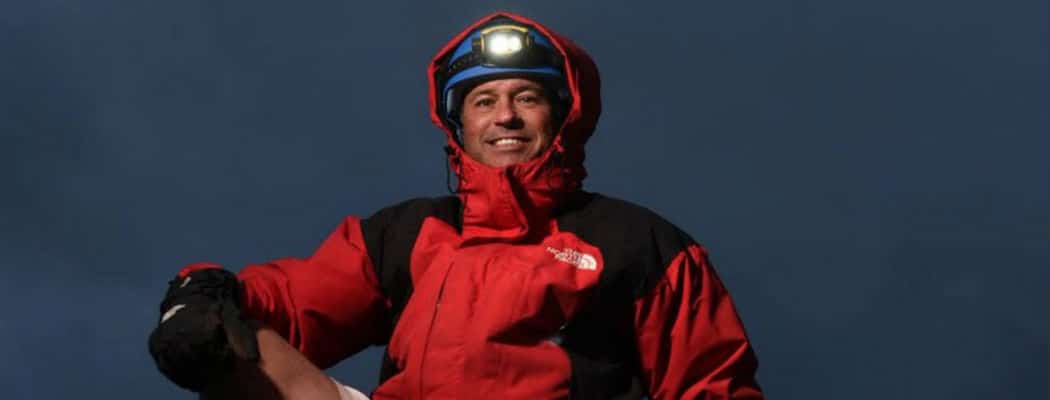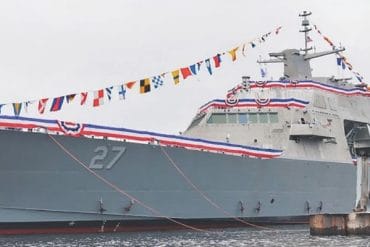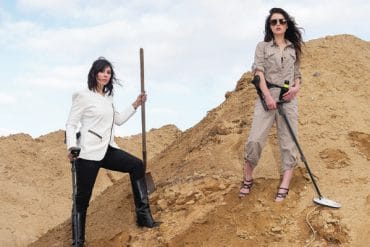The high-altitude pursuits of Johnny Arena.
 A litmus test for being a true Nantucket local is whether or not you know Johnny Arena. With a trim, compact physique wrapped in a perpetual George Hamilton tan, Johnny Arena holds more court at establishments like The Pearl, The Galley and Ventuno’s “back bar” than Chief Justice John Roberts. A seasoned real estate broker by day, Arena has another passion that reveals a highly-focused and disciplined side of him that has brought him to great heights — quite literally.
A litmus test for being a true Nantucket local is whether or not you know Johnny Arena. With a trim, compact physique wrapped in a perpetual George Hamilton tan, Johnny Arena holds more court at establishments like The Pearl, The Galley and Ventuno’s “back bar” than Chief Justice John Roberts. A seasoned real estate broker by day, Arena has another passion that reveals a highly-focused and disciplined side of him that has brought him to great heights — quite literally.
An avid skier since the age of five, Arena’s first experience with big mountains was while living as a self-proclaimed ski bum in Breckenridge, Colorado. It was there that he confirmed his love for the mountains and gained a deep respect for their danger. One morning, his housemate urged him to take the day off to ski an unpatrolled peak after a large snowfall. Arena declined, believing that the slope could be unstable. That afternoon he learned his roommate had been killed in an avalanche. Although Arena would never lose his love of mountains, he also would never forget to respect the wrath they possess.
Some years later, while a senior investment advisor in the high net-worth portfolio group at Fidelity Investments in Boston, where he would work for twelve years, Arena was invited to climb Mount Kilimanjaro by some co-workers. Despite his experience skiing, he knew little about mountain climbing and even less about mountain training. His preparation was limited to walking up and down the stairs to his office on the twelfth floor several times a day. Yet no amount of stairs could prepare him for the actual rigors of a six-day hike to reach the highest peak in Africa.
 While climbing a mountain made famous by Ernest Hemmingway sounded glamorous, Arena learned that living without a shower for eight days, risking being attack by wild animals (leopard paw prints were found just outside his tent one morning), and dodging falling boulders was not something he read about in the chamber of commerce guide books. After climbing Kilimanjaro, Arena now had mountaineering in his blood and he wanted more.
While climbing a mountain made famous by Ernest Hemmingway sounded glamorous, Arena learned that living without a shower for eight days, risking being attack by wild animals (leopard paw prints were found just outside his tent one morning), and dodging falling boulders was not something he read about in the chamber of commerce guide books. After climbing Kilimanjaro, Arena now had mountaineering in his blood and he wanted more.
On September 11, 2001, Arena and the rest of the world were fixated by the attack on the World Trade Center. It was a moment that changed his perspective on life. All of a sudden, working inside a downtown office tower and selling financial products didn’t hold the same meaning for him. Three weeks after the September 11th attacks, Arena took an unpaid leave of absence and set out on the Salkantay Trek, a fifty-mile hike in Peru that navigates high mountain passes reaching up and over 8,835 feet before culminating at Machu Picchu.
His next objective was Huayna Picchu. Although less than 9,000 feet high, the ascent is almost completely vertical. The Incas used the mountain to defend the town below, accessing its summit by climbing the so-called “stairs of death,” which were designed to trip up attackers. “Going down this mountain, as with most mountains, is far more dangerous than going up,” Arena says. “After any big climb, you’re tired, feel you have accomplished your goal, and you have gravity working against you.” Indeed, more people die during a descent than on an ascent. Upon returning from his adventures in Peru, Arena returned to work. A few months later, he quit his job and moved to Nantucket, full time.
 Arena’s next climbing conquest was Mount Aconcagua in Argentina, a 22,841-foot peak that is the highest mountain in South America. On the second day, Arena’s group was informed that in the previous week, four climbers had been killed in separate incidents. Two were killed from high-altitude cerebral edema, and two perished from hypothermia. Despite nearly getting killed in a rockslide and almost being knocked off a cliff by a passing mule team, Arena was still hooked on the big mountains. The trip took fourteen days to get up and three to get back down.
Arena’s next climbing conquest was Mount Aconcagua in Argentina, a 22,841-foot peak that is the highest mountain in South America. On the second day, Arena’s group was informed that in the previous week, four climbers had been killed in separate incidents. Two were killed from high-altitude cerebral edema, and two perished from hypothermia. Despite nearly getting killed in a rockslide and almost being knocked off a cliff by a passing mule team, Arena was still hooked on the big mountains. The trip took fourteen days to get up and three to get back down.
Last summer, Arena set out to climb Mount Rainier in Washington State. He spent months training by tromping around the Moors with a forty-pound pack and running on an incline treadmill at the Nantucket Hotel gym. At 14,411 feet, Mount Rainier is the fourth highest peak in the lower forty-eight states and considered one of the most strenuous and dangerous hikes in the United States. In 1981, eleven climbers on Mount Rainier were killed by a rockslide, the worst American mountaineering tragedy in US history. Equipped with a headlamp, helmet, ice axe and crampons, Arena made a roped ascent by night and reached the summit for sunrise. He injured his knee on the ascent and was forced to limp back down 9,000 vertical feet.
On yet another climb, Mount Ixta, a 17,160-foot dormant volcano in Mexico, Arena found himself perched at a camp below the summit, watching his iPhone, screaming in delight as the Patriot’s won the Super Bowl this year. Waking up his climbing mates, his voice could be heard echoing through the valley as time ran out on the Falcons.
According to Arena, “I have never had a major climbing incident however after my rapid ascent and descent (fourteen-hour round trip) of Orizaba, another Mexican volcano, which stands at 18,490 feet, I began coughing up blood which is a symptom of altitude sickness known as HAPE, which is high-altitude pulmonary edema.” The best way to cure HAPE is to get back to lower altitude, preferably sea level. Arena made it back to Nantucket two days later, fifteen pounds lighter, but no longer sick.
 Arena’s next target is Mount Whitney in California, the highest summit in the contiguous US. After that, he might take on Mount Elbrus, the highest mountain in Europe. But he makes it perfectly clear that there are some mountains that do not hold interest for him, most notably Everest. With at least six climbers dying on Everest just recently, Arena puts the mountain climbing experience in perspective. “If you have a bad experience during a marathon, which I equate to mountain climbing, you can always call an Uber,” he says. “When you are in a dangerous situation halfway up a mountain, you are the only way out.”
Arena’s next target is Mount Whitney in California, the highest summit in the contiguous US. After that, he might take on Mount Elbrus, the highest mountain in Europe. But he makes it perfectly clear that there are some mountains that do not hold interest for him, most notably Everest. With at least six climbers dying on Everest just recently, Arena puts the mountain climbing experience in perspective. “If you have a bad experience during a marathon, which I equate to mountain climbing, you can always call an Uber,” he says. “When you are in a dangerous situation halfway up a mountain, you are the only way out.”
Those who know Johnny Arena understand the dichotomy of his personality, at once the life of the party and an intensely focused realtor and mountain climber. When asked why he subjects himself to the risk and discomfort of mountain climbing, Arena says he relishes the fulfillment found in setting goals and achieving them: “The level of satisfaction after completing a successful climb transcends making money or any other conventional life experience,” he says. So the next time you’re out for dinner on Nantucket, look for Johnny Arena holding court. His tales are indeed tall, but only when measured in vertical feet.






